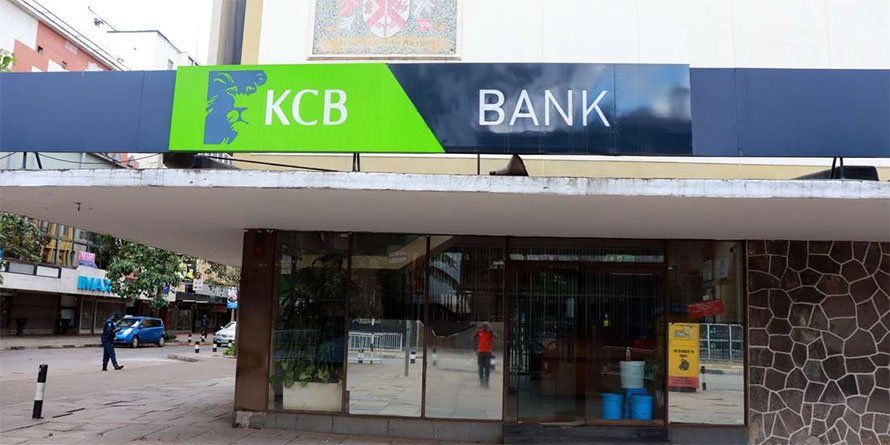A KCB branch in Nairobi. FILE PHOTO | NMG KCB Group’s net earnings dropped by a staggering 40.4 percent in the half year ended June, indicating the impact of coronavirus-related defaults and loan restructuring on the banking industry.
The country’s biggest bank by assets said it made a net profit of Sh7.5 billion in the review period compared to Sh12.7 billion the year before, attributing the performance to increased provisioning for bad debt.
KCB did not declare an interim dividend, which has previously stood at Sh1 per share, with the move saving it Sh3.2 billion.
The lender raised its provision for potential loan losses 3.6 times to Sh11 billion from Sh3 billion, eating into its bottom-line.
This was in response to the gross non-performing loans more than doubling to Sh83.8 billion from Sh39.1 billion.
The ramp-up in provisioning overshadowed robust earnings from the mainstay lending business, which saw net interest income jump 22 per cent to Sh31 billion.
Kenya confirmed its first case of coronavirus on March 12, setting off a series of public health measures that have hurt workers’ and companies’ earnings.
The measures included closure of bars, a ban on international travel and lockdown of counties like Nairobi and Mombasa.
Some of the restrictions have been removed, but the economic damage is expected to linger for months, with banks having started to feel the heat in the second quarter beginning April.
“The second quarter was the toughest in our recent history as the pandemic hurt economic activity across markets. Most of the key sectors were nearly shut down and our customers continue to face unprecedented challenges,” KCB’s chief executive, Joshua Oigara, said in a statement.
Industries and other businesses have since cut down on their activities in response to the infectious disease, leading to job cuts and unpaid leave for retained staff as profitable firms move into losses.This has seen workers who had tapped mortgages and unsecured loans for purchase of goods such as furniture, cars and expenses like school fees default. Unsecured loans are given on the strength of one’s salary.Firms that had borrowed based on the forecast of cash flows have also been struggling to repay their bank loans.If KCB’s performance proves to be a bellwether for the banking industry’s earnings, investors are staring at record profit warnings and more dividend cuts this year.Firms listed on the Nairobi Securities Exchange are required to warn investors if they expect their net profit to fall by at […]
